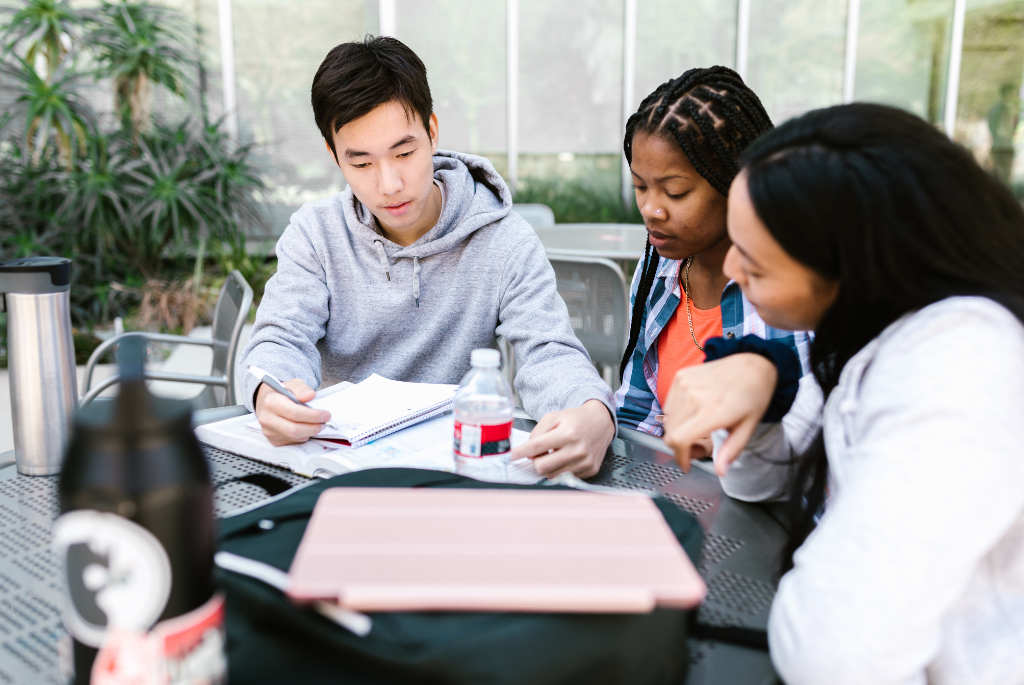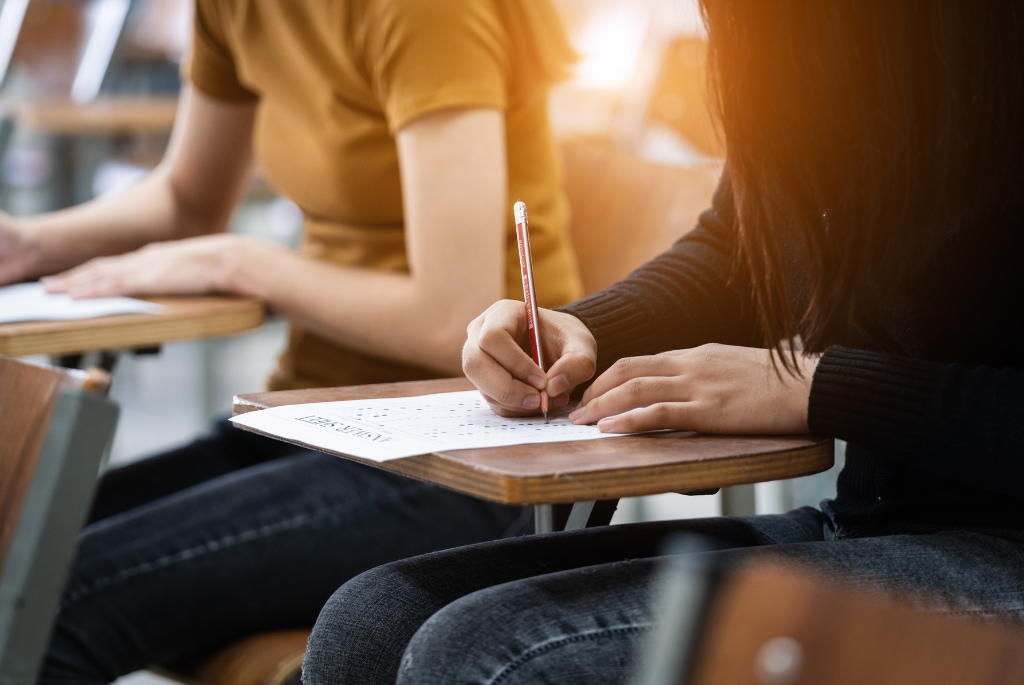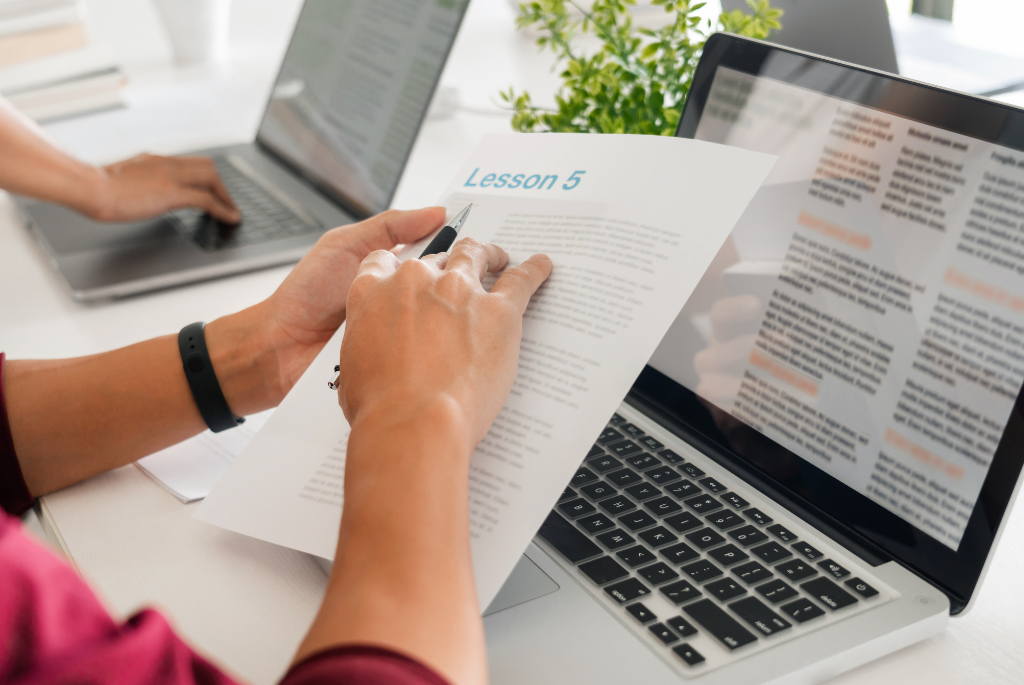Exam tips for teachers: How to prepare students (and yourself) for exam season
Exam season is a stressful time. Teachers often feel this as much as students.
After devoting so much time to supporting your student’s learning, it would be impossible not to feel the pressure.
Here are some important tips to help you and your students with exam pressures.
Preparing students for exams
Stress is often a consequence of feeling unprepared.
One of the best ways to ease students’ exam anxieties is to ensure they feel well-prepared. The feeling of control reduces cortisol levels and promotes well-being.
Preparing students for exams is part of their learning journey over many school years and isn’t a last-minute solution. However, there are strategies you can use in the final weeks that can motivate pupils and boost confidence.
In the words of Benjamin Franklin, “By failing to prepare, you are preparing to fail,” so let’s dive into some techniques for preparing students for exams.
Promote Active Student Learning
Active learning puts students at the centre of the learning experience. It allows them to become more engaged and active participants in the classroom.
Active learning gives students a deeper understanding of a topic than simply listening to a teacher speaking throughout the lesson.
Examples include debates, knowledge quizzes, games, think-pair-share, and physically moving around the classroom.
Incorporating active student learning can boost engagement and keep them alert, especially during revision, when students may spend more time concentrating than usual.

It’s important to strike a balance. Follow these activities up with formal exam question practice to regain student focus.
Create positive distractions
Creating distractions for your students may seem counterintuitive, but positive distraction can boost concentration and encourage better-quality learning.
Students tend to zone out if they spend too long on passive reading or note-making during revision, but building in some break-out time for positive distractions helps prepare students for exams.
For example, you could intersperse revision note-taking time with discussion time or a revision game so that children have a breather and can talk aloud for a moment.
Think of stress like a fizzy drink. Sometimes loosening the cap can let some of the fizz out before it explodes!
Motivate students
Studying for exams is the height of delayed gratification, as students wait painfully long time to reap the benefits of their hard work!
In an ideal world, students will have an intrinsic motivation to revise. Understandably, though, this isn’t always the case.

Motivate students by explaining why exam preparation is essential. For example:
- To identify weaker areas that need improving
- To learn your strengths
- To remove some fears of the unknown and boost confidence in answering exam questions
Students have been hearing for years that they must do well in exams, but explaining why they matter can motivate your students.
Breaking down the purpose of the exam and the grading specification can help your students gain perspective and motivate them to study.
Explore different learning styles
Everyone’s learning styles are unique. How one student learns well may not work for another.
In the months before exams, prepare students for exams by trying different revision styles and see what works best for them.
Here are some examples:
- Revision podcasts
- Interactive videos
- Making colourful cue cards
- Making and highlighting notes
- Answering practice exam questions
- Looking at previous tests
- Listening to music while revising
- Revising outside
- Creating revision games
- Reading textbooks
Allow your students to experiment with different learning styles to find what works best for them to get the most out of their revision.
Prepare mock exams
Routinely exposing students to exam questions can make exams feel more familiar.
As well as asking them to answer questions from previous exams, take time to pull the mark scheme apart with your class. Showing students where and how marks are allocated builds their understanding and confidence.

Encourage healthy habits
Encourage healthy habits during classroom revision by taking learning outside, breaking for a few minutes of yoga, or bringing in fruit and healthy snacks.
Physical activity is proven to have positive effects on attention and academic performance. Encourage your students to allow time for movement, get plenty of fresh air, and sleep during the months leading up to exams.
Another way to boost cognitive function is to be mindful of screen time. While technology is great for helping students with revision games, quizzes and podcasts, too much can impact our ability to focus and negatively impact sleep quality.
Exam preparation for teachers
You want your students to do their best in their exams so it’s only natural to take on the exam worry yourself.
Here are some exam preparation tips for teachers to help avoid burnout.
Get good quality sleep
After encouraging your students to get good quality sleep, it’s time to practice what you preach!
Create an evening routine where you can switch off and relax. You can do this by switching off screens an hour before bed, sleeping at the same time every night, and avoiding late afternoon caffeine.
Eat breakfast
Teachers’ busy routines can make it easy to fall into unhealthy eating routines like skipping breakfast.
Making time for a healthy breakfast can boost your energy and balance sugar levels, giving you plenty of energy for the day.
Limit caffeine
Don’t panic, you don’t have to give up coffee entirely! But limiting caffeine can help reduce anxiety, improve sleep quality, reduce headaches, and improve your mood.
Exam seasons are stressful so try switching a couple of cups for decaf or green tea can reduce your caffeine intake and even make you feel more relaxed.
Try visualisation
Visualisation is often used as a tool to remain calm during stressful times. Some teachers recommend this to visualise the desired outcome of an exam.
You can try visualisation for a variety of different things such as seeing your student’s faces on results day achieving great results, picturing your students engaging in lessons or visualising them answering questions correctly.

Be prepared
The best way to prepare is by knowing your syllabus. Familiarise yourself with it through online webinars, exam board training, practice marking previous exams or joining online support groups. Through this, you’ll pick up tips to help deliver lessons and prepare your students.
You could make an exam kit for yourself (and your students) to prepare. The kit could include:
- Revision timetables
- Specification reminders
- Top tips
- Model exam answers
- Treats for rewards
Exercise regularly
Build some time into your schedule to move your body. Even a short walk outside can reduce stress, increase endorphins and maintain a better work-life balance.
Ask for help
Whether you’re feeling stressed, have questions or need someone to talk to, you don’t have to experience it alone. Reach out to the teaching community, whether it’s colleagues in the staffroom or online communities, a chat can put your mind at ease.
Join our Geography Teacher Zone Facebook group.
Create a plan
Planning aids preparation and helps you feel more in control of your schedule.
Create your lesson plans around critical deadlines like mock exams. Block out time to teach content, test your students, revisit key topics and test again so they’re highly prepared when exams arrive.
Ensure you plan break-out time for active learning, mixing up your teaching methods, and exercise.

If you have exams coming up, make a plan, incorporate healthy habits, and role model the same for your students!
The most important thing is that, whatever the outcome of an exam, your students will remember the impact you made on them.


